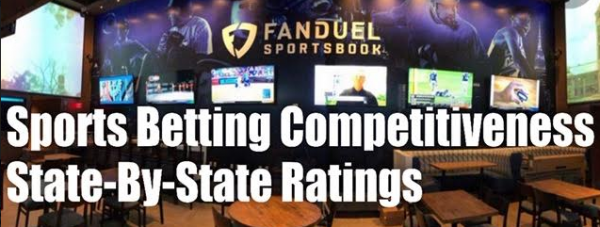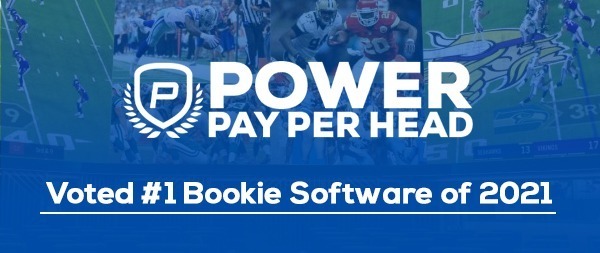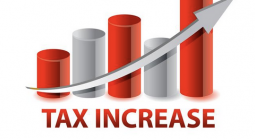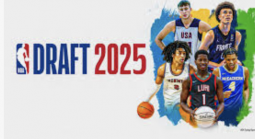Sports Betting Competitiveness State-By-State Ratings (A Gambling911 Exclusive)
This analysis rates each state based on its ability to compete in the regulated sports betting sector utilizing current metrics such as product offerings/restrictions, remote/mobile access, retail reach as well as regulatory strangleholds, which could serve to hinder market growth. Scroll Down For More
State-licensed or permitted operators competition includes, but is not limited to, offshore sportsbooks, both licensed and unlicensed by jurisdictions outside the US, in-state bookmakers/agents, and hybrid fantasy/gaming/contest applications. Examples of the later include eSports platforms using an in-game item such as virtual weapons as currency.
A number of offshore sportsbooks have been in business for 20 plus years. Many of these sites now offer anonymous betting accounts that do not necessarily require a home address.
How We Got Here
On May 14, 2018 the US Supreme Court cleared the way for states coast to coast to legalize betting on sports, breaking a longtime ban and creating a potential financial boon for states and the gambling industry.
The law the justices struck down was in affect since1992 and titled the Professional and Amateur Sports Protection Act.
Justice Samuel Alito wrote for the court, “The legalization of sports gambling requires an important policy choice, but the choice is not ours to make.” The court’s “job is to interpret the law Congress has enacted and decide whether it is consistent with the Constitution,” he wrote. “PASPA is not.”
Justices Ruth Bader Ginsburg, Stephen Breyer and Sonia Sotomayor dissented. Ginsburg wrote for the three that when a portion of a law violates the Constitution, the court “ordinarily engages in a salvage rather than a demolition operation,” preserving what it can. She said that instead of using a “scalpel to trim the statute” her colleagues used “an axe.” Breyer agreed with the majority that part of the law must be struck down but said that should not have doomed the rest of the law.
Two Issues Getting in the Way of US Sports Betting Market
Apple is requiring that all iOS gambling apps must be built natively rather than as HTML container apps effective September 3. This is as bad as it sounds.
Existing apps, including the vast majority of sports betting platforms in the New Jersey market, must abide by the new rules as well. This will be no easy task and the process for adherence likely won't occur until some time later in the NFL season.
The new guidelines state the following:
“HTML5 games distributed in apps may not provide access to real money gaming, lotteries, or charitable donations, and may not support digital commerce. This functionality is only appropriate for code that’s embedded in the binary and can be reviewed by Apple. This guideline is now enforced for new apps. Existing apps must follow this guideline by September 3, 2019.”
“It’s going to hurt a lot of people,” said Stuart Godfree, managing director and co-founder of gambling apps and software developer mkodo, in an interview with OnlinePokerReport.com. “Rebuilding a game will take several months; just look at the size of the [games] portfolios that people have. It’s huge.”
Another obstacle standing in the way of US sports betting: The US Justice Department.
While the sports gambling train has already left the station, the DOJ still has a few aces up its sleeve. They just filed to appeal a recent ruling by a US District Judge in New Hampshire that stated the Wire Act only applied to sports betting.
The Wire Act focuses heavily on transport of money across state lines. As such, operators may need to rethink how payments will be made to those residing outside the state where a bet has been placed, even if the individual requesting a payout lives in a state that allows sports gambling. An example would be someone visiting the state of New Jersey from Illinois (both have legalized sports betting). That individual opens an account at FanDuel, places bets while in New Jersey and wins money. He or she heads back to Illinois and looks to collect. That option may no longer be available should the DOJ wish to flex its muscle. And, by filing this appeal, we know they mean business.
State Competitiveness Ratings
We use a scale of 1 to 10 for these ratings, 1 being the least competitive, 10 being the most. When a rating changes, updates will be made. Only eight states can, or are in the process of, providing even a semblance of competition for the offshores and locals.
1
These states do not offer sports betting or have no plans to do so at the moment. Even with passage of legislation, as is the case in Maine where Governor Janet Mills sat on the measure and allowed it to lapse, states will receive a rating of “1” by default if no state amendments or operating sportsbook (without state amendment required) are currently or in the process of becoming operational.
30 states, or more than half, currently receive a rating of 1 on a scale of 1 to 10 with 10 being the most competitive market.
Alabama
Alaska
Arizona
California
Connecticut
Florida
Georgia
Hawaii
Idaho
Kansas
Kentucky
Louisiana
Maine
Maryland
Massachusetts
Michigan
Minnesota
Missouri
Nebraska
North Dakota
Ohio
Oklahoma
South Carolina
South Dakota
Texas
Utah
Vermont
Virginia
Washington
Wisconsin
Wyoming
2
These states offer casinos with sportsbooks in locations that are not easily accessible and only a nominal number of venues are anticipated. Mobile/remote sports wagering is off the table for now.
Arkansas
New Mexico
North Carolina
Oaklawn Racing Casino Resort in Hot Springs, Arkansas was the first sportsbook to open in that state. It began operations on July 1.
The distance between Hot Springs and Little Rock, Arkansas’ largest city, is one hour.
A sportsbook slated for Southland Casino in West Memphis should attract more people from Memphis in neighboring Tennessee.
New Mexico now has two sportsbooks, one just outside Albuquerque, another in Santa Fe, Buffalo Thunder. Their offerings are limited.
North Carolina is about to open a sportsbook in a remote location of the state convenient only to Ashville in terms of major population centers.
3
Delaware
Montana
Oregon
In the case of Delaware, there are three casinos strategically spread across the second smallest state. Each of these books offer limited options when it comes to sports betting.
Delaware, Montana and Oregon had the added advantage of being among a handful already allowed to offer sports betting prior to the US Supreme Court ruling in 2018. Nevada is a fourth and the only one of these states that truly capitalized. To be fair, Delaware did make a valiant effort, but the market just isn't there.
Montana will have betting kiosks across an undetermined number of venues, mostly taverns.
Embattled lottery giant Intralot will be put in charge of running the Montana sportsbooks during the industry’s first seven years.
The fact that bars and restaurants will be able to offer sports betting kiosks should boost Montana up a rating, but mobile will only be allowed within these establishments for the time being.
Lottery officials estimate that people will wager more than $65 million in the first year, which would mean about $3.7 million in revenue to the state after an expected 80 percent payout and expenses.
Both wagers and revenue are expected to rise to $87 million in bets and $5.4 million in revenue by 2023, according to estimates. The profits will be mixed with other lottery revenue and will go to the state treasury and to a scholarship fund.
Oregon has its first sportsbook in a location that is out of reach of most major metropolitan centers. Salem is the closest city and still at a 45 minute distance.
While Oregon is expected to come online statewide, the lottery will be overseeing this venture. They squandered a chance to capitalize from sports wagering in years past. Already there are signs this trend will continue. The state will not permit betting on ANY college team remotely. Guess where Oregonians will be placing bets during Bowl season and March Madness!
“As we’ve been looking to get back into the sports betting market — it’s been more than a decade since we’ve had any — we’re kind of easing into it,” Matthew Shelby, public information manager for the Oregon Lottery, told Sports Handle on Monday. “Professional sports is an easier sell to the broader audience. We may revisit (wagering on collegiate events) later on. It’s a business decision for it right now. There is concern on our commission about adding colleges, never say never, but we thought it best to shy away from colleges right now.”
Retail sportsbooks plan to offer betting on college sports.
Even when Oregon comes online, we can’t see them climbing anywhere beyond a “4” rating. Sorry Oregon.
4
Mississippi
New York
Rhode Island
West Virginia
Washington DC
Mississippi and West Virginia were two states that broke from the gate early on, immediately following the Supreme Court ruling.
Mississippi on a competitiveness index serves to actually increase business for the offshores despite having a number of decent sportsbooks located in Biloxi and Tunica casino properties. That’s because there is so much exposure to sports wagering in the Magnolia State but few folks are traveling to Biloxi or Tunica daily to place bets. The state only allows mobile on the casino property.
West Virginia will be offering mobile statewide, but so far these efforts have gotten off to a disastrous start. Delaware North operates two of the five casinos that run sportsbooks. They filed suit against their initial vendor and have been in a holding pattern ever since.
FanDuel has now launched its app in conjunction with the famed Greenbrier Casino. This app will be available on Android only. Draftkings was expected to follow suit the last week in August.
West Virginia will be monitored to determine if they are upgraded to a "5" rating in the near future based on how these mobile platforms perform.
Both Mississippi and West Virginia do permit betting on their respective college teams, a definite plus.
Rhode Island has two designated casinos that offer sports betting. Despite being the smallest state, these casinos are inconvenient to get to from most major New England cities with the exception of Providence.
Rhode Island’s foray into the sports wagering space has given West Virginia a run for its money. They haven’t come anywhere near hitting the forecasted numbers, mobile is only now about to be launched after a near one year delay, and Rhode Island’s sportsbooks do not offer popular parlay betting.
Then there’s this from the AP August 22:
Rhode Island lottery officials are trying to block a Republican-backed constitutional challenge to legal sports betting.
Attorneys representing Twin River Casino say Daniel Harrop’s lawsuit filed in May should be dismissed because he isn’t hurt by sports betting and lacks standing to sue.
The Providence Journal reports that Harrop sued over the state’s legalization and launch of sports betting without first seeking voter approval.
The state lottery will oversee Rhode Island’s mobile offering (no comment). We will have to wait and see what they have in store for us in terms of a competitive product to what one can find visiting offshore sites or the local bookie. We probably won't have to wait long to make a judgement call.
New York is yet another state that will feed the offshores and local bookmakers.
The sportsbooks will be operational in casinos that are hard to access by most people, including those living in New York City and Buffalo. Exposure to sports betting ads, especially in the NYC media market via New Jersey, will be extensive. But with no mobile in the state, where else to go but the offshore sites if traveling is not in the cards on any given day.
Washington DC’s sports betting will be overseen by the lottery. Good luck with that!
Rotogrinders writes:
The bad news is that the resulting mobile/online sportsbook to go to market — singular — may be somewhere between mediocre and downright terrible.
That’s because the Sports Wagering Lottery Amendment Act of 2018 puts the DC Lottery in charge of sports betting, and the DC Lottery has contracted with the Greek company Intralot, which manages lottery and iGaming operations in a dozen U.S. states.
Washington DC’s population density of 11,535 people per square mile along with a weekday ballooning workforce of around 3,353,400 works more in favor of the offshore sportsbooks. That’s because folks will be heavily exposed to sports wagering if they happen upon a bar that offers the activity. They’ll head back to their hotel rooms, homes in Virginia and Maryland or office having the urge to place more bets. They’ll likely despise the DC Lottery site and won’t even be able to access it from outside the district.
This is actually a situation where, the more establishments offering sports betting in DC, the more business that will be driven to the offshore books.
The DC situation is akin to a newborn being diagnosed with a life debilitating disease from Day 1.
Already there are threats of lawsuits, claims of cronyism and other warning signs that point to an epic fail. This has prompted Gambling911.com to demote the DC ranking from a "5" to "4".
5
Tennessee
Nothing’s launched yet but Tennessee will have mobile-only sports betting with few restrictions outside of what could prove to be an inferior in-play product when compared to the offshore books. That’s because the leagues will have influence on types of prop bets permitted.
Tennessee will welcome a host of applicants based on initial reports.
Everything will likely come down to the quality of apps on the market and betting options available.
Outside of the league influence, Tennessee does not appear as if it will be constrained by a regulatory stranglehold like that we see in New Jersey.
6
Illinois
Indiana
New Hampshire
A “6” rating we might anticipate offshore sportsbooks having to go above and beyond in an effort to distinguish themselves. This is where the men separate from the boys, or women from the girls. In addition to the anonymous betting accounts, sites like BetOnline readily take bets on the day’s events like the Dow’s next move following a big dip on August 23, celebrity fights and a vast menu of political props.
Once these states are open for business, we anticipate a nice jump with mobile available throughout each state/district’s borders.
Indiana appears the nearest to opening the first week for football. We’ll have to see the products they are putting out.
A number of casinos in the Hoosier State confirmed they are set to open sportsbooks.
Boyd Gaming-run Blue Chip Casino will open its new sports betting facility at 10 a.m. Sept. 5, before that evening's kickoff of the 2019 National Football League season.
The Boyd-FanDuel partnership sportsbook at the Belterra opened its doors September 9 just in time for the first Monday Night Football games of the season.
Even if mobile is not available until some time the middle or later part of the football season, retail sportsbooks should be readily accessible to most of the state's major population centers.
The Indiana Gaming Commission still needs to approve rules for sports wagering in Indiana.
Indiana will not allow betting on eSports.
Illinois will have some of the highest taxes in the nation for operators. They are not letting Draftkings or FanDuel in for the time being, and betting on games featuring in-state college teams will be prohibited. This means no wagering on Northwestern during college basketball.
There will eventually be mobile wagering and kiosks set up in and around major sports venues, Wrigley Field included.
Assuming the mobile and kiosks options come to fruition, Illinois will likely find itself rated much closer to 10 on this scale. The high taxation could result in more inferior product offerings however, so this is something to keep an eye on.
New Hampshire will be allowing sports betting in bars and online. They do not have land-based casinos. But the huge advantage here: Those 18 and up can bet.
7
Iowa
Sky’s the limit for the Hawkeye State. With what appears at the onset to be a limited regulatory stranglehold on operators and affiliates alike, sportsbooks are cropping up throughout the state in casinos conveniently located near just about every population center in Iowa.
The handicap here for the first two years will be on-site registration. Those visiting the state will likely be exposed to sports betting but won’t be able to register on any of the mobile sites unless they happen to be staying next to a casino. With the Iowa Democratic Caucuses taking place February 3, sports wagering in Iowa will be akin to one of those VIP nightclubs you can’t get into, so you end up settling for that other club where the clientele might not be as pretty, but there tends to be more substance. In this case that would be the offshore sportsbook sites.
Iowa sportsbooks won’t offer in-play prop bets on games featuring in-state college teams.
The below map paints an ominous picture of the prospects of legalized sports betting for Iowa’s neighbors to the west: Nebraska, Kansas, South Dakota. The red represents Iowa Senate nay votes, and the western portion of the state tends to lean more Republican, as does Nebraska, Kansas and South Dakota.

8
Pennsylvania
The vast number of retail sportsbooks spread throughout the state and nearby major cities such as Philadelphia and Pittsburgh coupled with a mobile offering and some solid brands moving in will require offshore sportsbooks to really step up their game if they want to compete in the Keystone State.
Still, operators will be paying some of the highest taxes in the nation. In theory, this should result in reduced quality. We actually began seeing glimpses of this with Parx as pointed out by LegalSportsReport:
Base pricing out of step with the market is not an ideal way to acquire share in competitive PA https://t.co/MQ401aNPuQ
— Legal Sports Report (@LSPReport) August 27, 2019
Sugarhouse has even figured out a workaround to overcome Apple’s new policy. It’s called accessing the site through a browser, the same technology currently employed by offshore sportsbooks. Sure apps are nice, but they also eat up all your cell phone power and take up a lot of space.
Like with most states, election and entertainment betting will be off limits. Both the US Presidential race and Oscars attract large numbers of gamblers. eSports wagering is not permitted either.
PA requires an arduous application process for affiliates. We had one guy tell us he was waiting for them to ask if they can draw blood, and he's still waiting months later for approval.
9
New Jersey
Nevada
Nevada was exempt from PASPA, retail sportsbooks are everywhere, and mobile betting is available within the state’s borders. But betting online requires in-person registration and divulging plenty of personal information such as one’s name, address, date of birth and contact information as well as….all the fun stuff….drum roll please.... a government-issued ID and Social Security number or tax ID number (ahem).
It might come as quite a surprise that there are still plenty of folks living in Vegas who place their bets offshore. That’s because the offshore books tend to offer better value for line shoppers and sometimes higher limits.
In recent years, Nevada has allowed betting on professional entry drafts like the NFL draft, and even some video game competitions. They do not, however, offer the wide range of Super Bowl props allowed at a number of offshore books. This is where sites like BetOnline tend to capitalize taking bets from Nevada residents.
New Jersey is in the process of overtaking Nevada when it comes to the sports betting market. This is the state that fought in court to have PAPSA tossed, so it should come as no surprise that NJ has had the most success to date among the post-PAPSA entrants into the market, and, we might add, it's well deserved.
Still, New Jersey’s foray into sports betting has its blemishes. Regulators prevent revenue sharing partners from promoting licensed NJ sportsbooks without license approval. Affiliates cannot promote offshore books and licensed state operators are prohibited from doing business with ad partners that do so. This has resulted in a handful of affiliate conglomerates entering the market and all but shutting out the little guys.
Most industry experts admit the state overstepped by going after the popular odds provider Oddsshark as they were found to be promoting NJ-licensed sites along side the likes of Bovada and 5Dimes. As a result, Oddsshark opted to block state residents from accessing its lines feed. The state later clamped down on VegasInsider in early July 2019. Gambling911.com ad partners, including Bookmaker and BetOnline, no longer allow banking transactions with customers from the state.
There is some obvious rationale in requiring revenue sharing business models to be licensed. Media ad buys are a whole different animal and we happen to know Oddsshark charges big bucks flat fees to most of the offshores. Requiring the New York City television stations and New York/New Jersey radio stations to obtain licenses to carry ads presents a serious conflict of interest, especially in light of a controversy surrounding FanDuel that gained national attention. Conceivably WNBC could hold back negative reporting on any future scandals that might arise in the world of NJ sports betting out of fear it might have said license revoked. And God help them if anchor Chuck Scarborough happens to mention Bovada odds on air.
The state also prohibits betting on in-state college teams. This matters, especially during college basketball season with Seton Hall.
New Jersey also does not allow the extension of credit.
10
No state has yet to rate a “10” though this could change in 2020. We will have to wait and see.
A “10” would be indicative of ensuring the offshore books have zero ability to compete.
- Chris Costigan, Gambling911.com Publisher















